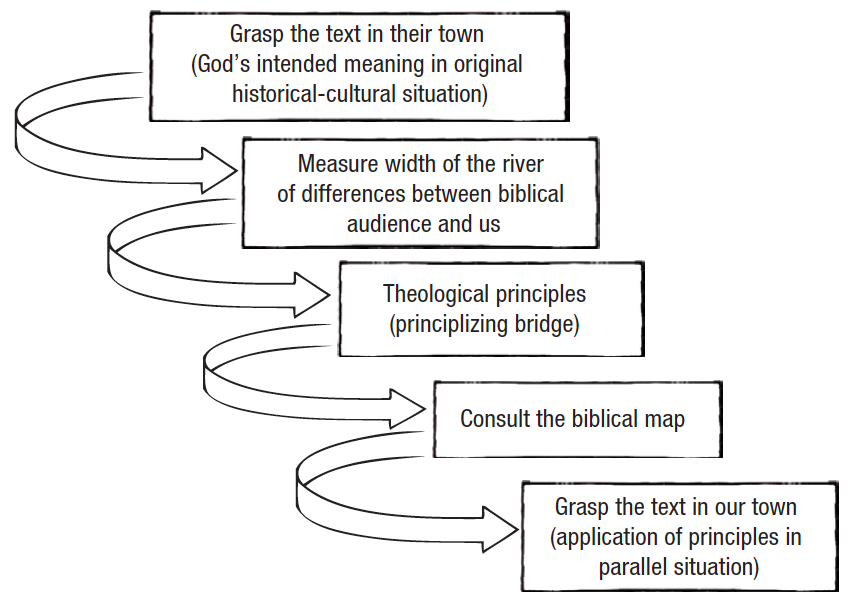UNIT 5:2 STUDY
Why Bother with Historical-Cultural Context?
In his commentary on the background of the Bible, Craig Keener reminds us that God did not dictate most of the Bible in the first person. He did not say, “Because I’m God I will speak directly to everybody in all times and cultures.” Instead, God (the ultimate source) spoke through the human writers of Scripture (the immediate source) to address the real-life needs of people at a particular time in a particular culture. This is how God chose to speak.
Please don’t misunderstand what we are saying here. God has given us eternal principles in his Word that apply to every person of every age in every culture. Our goal in Grasping God’s Word is to teach you how to discover and live out those theological principles. We are not questioning whether God has given us eternally relevant principles; we are simply noting how he has done so. We believe that the way we approach the Bible (i.e., the way we listen to God) should match how God gave us the Bible (i.e., the way God chose to speak). Otherwise, we will likely misunderstand what God is trying to say to us.
Since God spoke his message in specific, historical situations (i.e., to people living in particular places, speaking particular languages, adopting a particular way of life), we hould take the ancient historical-cultural situation seriously. The bottom line is that we cannot simply ignore “those people living back then” and jump directly to what God wants to say to us. Why not? Again, because the way we listen to God (our interpretive approach) must honor the way God chose to communicate. We should not be so arrogant and prideful as to think that God cared nothing about the original audience but was merely using them to get a message to us.
The truth of the matter is that each passage of Scripture was “God’s Word to other people before it became God’s Word to us.” God cared deeply about the original hearers and spoke to them within their own historical-cultural situation. God also cares deeply about us and wants to speak to us. The time-bound message of Scripture contains eternally relevant principles that we can discover and live out.
Think again about how the Interpretive Journey moves from the meaning of the text for the biblical audience across the river of differences (e.g., time, place, culture, situation) by means of the principlizing bridge to the application of those theological principles in our lives.

Back to our question: Why bother to become familiar with the original historical-cultural context? We do so because it offers us a window into what God was saying to the biblical audience. Since we live in a very different context, we must recapture God’s original intended meaning as reflected in the text and framed by the ancient historical-cultural context. Once we understand the meaning of the text in its original context, we can apply it to our lives in ways that will be just as relevant. God’s Word is eternally relevant. Our task as students of his Word is to discover that relevance by doing our contextual homework.
This leads us to a crucial interpretive principle: For our interpretation of any biblical text to be valid, it must be consistent with the historical-cultural context of that text. If our interpretation would not have made sense back then, we are probably on the wrong track. Fee and Stuart rightly emphasize that “the true meaning of the biblical text for us is what God originally intended it to mean when it was first spoken.” We must first determine what a text meant “in their town” before we can determine what it means and how we should apply that meaning to our own time and culture. Our goal, then, is to understand the historical-cultural context of the biblical passage as clearly as possible in order to grasp the meaning of the passage.